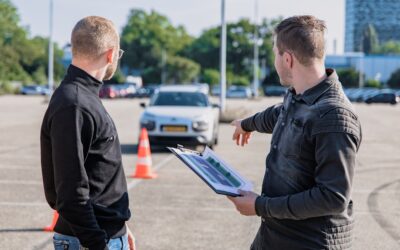Not all vehicles are destined for the open roads. Car enthusiasts like nothing more than to tinker with their rides, restoring, improving, and repairing them, as either a hobby or for profit. Others may purchase vehicles that they only intend to drive part of the year or that will eventually be used by a new driver working their way through the graduated licensing process.
But the question of can I keep a car without insurance becomes important the moment you take control of a new or used vehicle. In this article, we’ll explore the legalities of vehicle insurance and how the laws regarding auto insurance are used to protect drivers and pedestrians alike.
Can I Keep a Car Without Insurance: Frequently Asked Questions
Why do drivers need car insurance?
Car insurance has been available since the earliest days of the automobile. At first, it protected the substantial financial investments that early car owners had to pay in order to enter the motor vehicle age. As car ownerships and accidents began to rise at the same time that civil litigation and the ability to sue for damages others caused by others began to mature in the 1930s and 40s, regional, provincial and federal governments began to pass laws requiring that all vehicles be registered and have a minimum amount of insurance.
The reasons for this expansion of insurance are twofold. First, insurance protects pedestrians and other vehicle occupants in the event of an accident. After all, everyone agreed that if another driver steers into a pedestrian or another car, the driver should be responsible for paying for any damages or medical bills their accident caused. Second, as Canada’s public healthcare system began expanding across the country, provincial political leaders started to question why the state had to pay medical bills of those involved in accidents, especially more serious injuries that caused lifelong changes in health that affected an individual’s ability to earn a living and care for themselves and their families.
Fast-forward to modern times, and mandatory auto insurance coverage is in place throughout the country, still providing protection for drivers, passengers, and pedestrians as well as other vehicles and property. While the rise of no-fault insurance in many provinces have changed the rules of how claims are paid a bit, the basic principle remains; to protect Canadians in the event of an auto accident, claim or loss.
Can You Register a Car Without Insurance?
In Ontario and Alberta, you are able to register a car without insurance, providing that the vehicle is never driven on a public road. The process is fairly straightforward. Simply take your bill of sale and the registration of ownership or transfer of ownership to your local ServiceOntario location or to one of the many Alberta vehicle registration partners. There, they
will issue you a new registration of vehicle ownership document reflecting you as the legal owner of the vehicle.
It should be noted that license plates will not be issued without insurance. This means that the vehicle cannot be driven on any public roads and will need to be transported to your location by tow truck or flatbed truck or trailer. Even driving the car off a trailer onto a public road and into your driveway is prohibited and can result in a substantial fine.
Also, remember that license plates are non-transferable without registering the change to a new vehicle with the Ministry of Transportation. This means that you can’t legally remove the license plates from an existing vehicle and place them on a new vehicle in order to drive it home.
What Happens if You Drive a Car Without Insurance?
Every vehicle that drives on a Canadian road or highway needs to maintain a minimum about of insurance coverage.
In Ontario, car owners need to purchase a policy that includes third-party liability coverage of at least $200,000, accident benefits coverage that pays for medical and other expenses if the driver, passengers or pedestrians are injured in an accident, and direct compensation – property damage, which will pay to repair or replace your vehicle if you’re in an accident caused by another driver.
In Alberta, vehicle owners will need at least $200,000 in third-party liability along with accident benefits coverage in order to legally drive on public roads.
Is There a Penalty for Driving Without Insurance?
Driving on public roads without insurance can be costly; in fines well as other penalties. In Ontario, being convicted of driving without the minimum required car insurance will result in a fine of at least $5,000 and up to $50,000. You can also have your license suspended and your vehicle impounded.
If that doesn’t cause you to double check that you have valid insurance coverage, you should also know that insurance companies may also label violators as a “high risk” driver, forcing you into an expensive “facility” insurance program. If you are hurt in an accident and have no insurance, you may not be eligible to receive income replacement coverage under accident benefits and you may not be able to sue the other driver if you are seriously injured. You may also be found personally liable for the injuries and deaths of others.
In Alberta, the fine is a bit lower, starting at $2,875 and increasing up to $10,000, but failure to pay the fine can lead to a six-month jail sentence. A second offence in the province will the
double the minimum fine and a judge may increase your penalty up to $50,000. It’s also the judge’s prerogative whether to suspend your driver’s license.
In either province, if you happen to lease your vehicle or financed the purchase through a bank or other lender you are contractually bound to maintain insurance on the vehicle. Should the financial institution find out that you do not have the vehicle properly insured, they may repossess the vehicle due to breach of contract.
How Does Car Insurance Work?
Insurance claims payments are based on the concept of “restitution”, which means putting you back to where you were before the accident. In practical terms, this means the insurance will pay to repair your vehicle or replace it with a similar one after a crash. It may also pay to repair or replace other property that was damaged or destroyed in a car accident.
Car insurance works on the principle of sharing risk with other people. By having large numbers of people each paying a manageable amount each year, car owners can protect themselves from a much larger financial hit should one of you experience an accident that results in major damage to the vehicle, or the payment of the settlement of a lawsuit filed by someone injured in an accident that you caused.
This concept of many people paying a smaller amount to cover the larger costs of a smaller number of people also takes into account the relative risk posed by each driver by charging more for people who have experienced multiple accidents and claims than the amount paid by those without any accidents. The same is true for drivers who are known to violate the rules of the road by speeding or disobeying other traffic laws. These people will pay more for their insurance than those who obey traffic laws.






